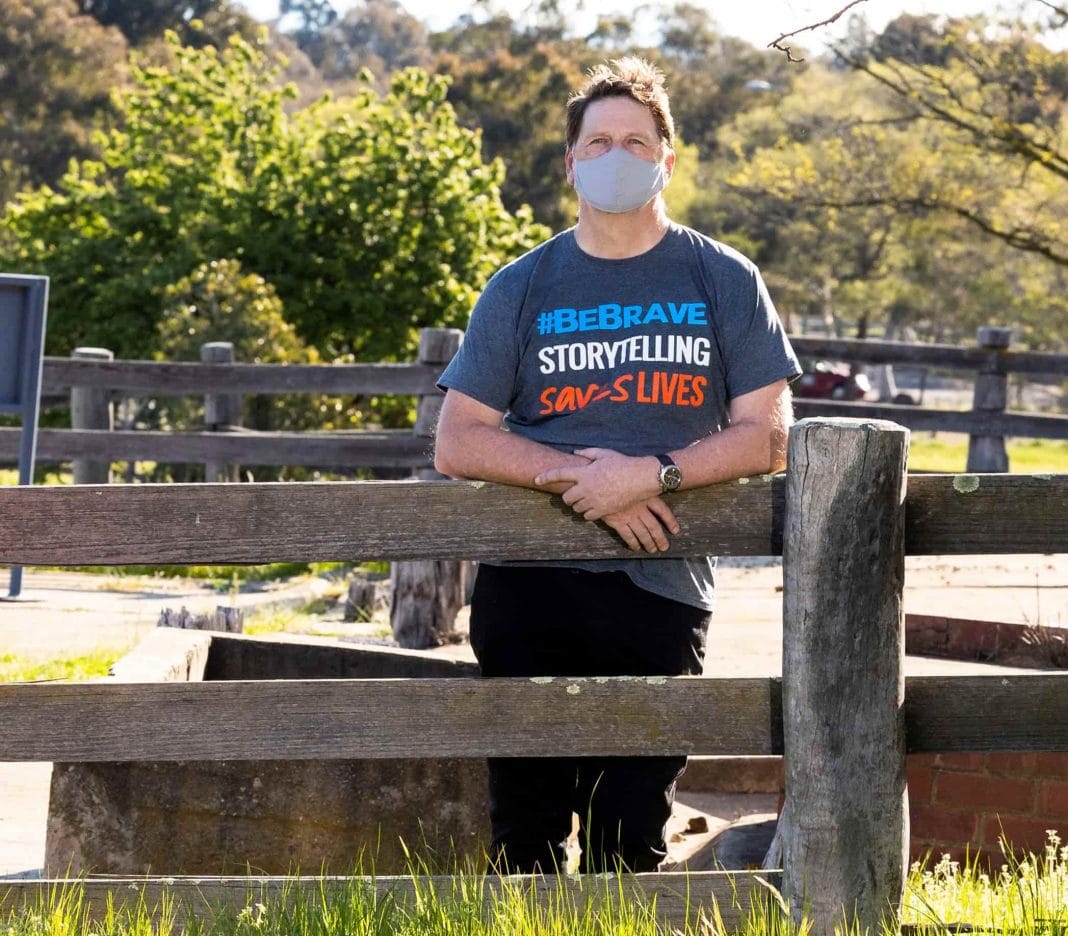The earlier you look after your mental health, the better, believes local Mental Health Month ambassador Tim Daly. He runs a mental health charity, and wants to break the stigma surrounding mental illness.
“Treat your mental health like your physical health,” he recommends.
“If you feel sick, go to the doctor. If you think your mental health is starting to be affected negatively, go to the doctor. Like in first aid, if you cut yourself, you put a Band-Aid on it. if your mental health is injured, you do something about it. Put your hand up early, and see somebody about it.”
But men, however, often don’t seek help when they should. Three in four (75 per cent of) suicides are completed by men, and that number, Mr Daly said, is not going down. He wants men not to be ashamed to admit they need help, but to talk to a friend or especially a GP as early as possible.
“Men do not put their hand up early enough to be able to manage their mental health issues before it gets serious,” he said.
“Early intervention is critical to manage [mental health], and not let it have a huge effect on your life. We men will leave it – unfortunately, that means it takes a lot of work and management to manage that mental health issue.”
Mr Daly knows first-hand the anguish mental illness can cause. He suffered mental health issues in a workplace where he had been for 16 years and, as a result, lost his job. He now runs This Is My Brave Australia, travelling the country holding shows where people share stories of living with mental illness through personal essays, songs, and poetry. The charity’s motto, aptly, is: ‘Storytelling saves lives’.
“The more people we can get out there to share their story, the more we can break down stigma,” Mr Daly said.
“A lot of people associate people with the mental health issue with their diagnosis to say, they’re a depressive, they’ve got anxiety, they’ve got bipolar, but obviously that’s only a small part of someone’s lives.”
Stigma is prevalent in the community, he believes, because many people do not understand that a mental health issue can be managed and dealt with like any other physical health issue.
At the shows, a local will talk about their experience of those conditions. “I’m just like you,” is the message; “I’m no different from you at all, I just happen to be managing a mental health issue at the same time, but I still have a family, I have a job, I’m a student, I still live a life, just like yours, but I’m still managing a mental health issue.”
To Mr Daly, that shows the strength of people dealing with their day-to-day life while managing their mental health issues.
These days, he says his own mental health is good, despite lockdown, because he works on it every day.
“Managing your own mental health issues is a thing you can’t just put down and walk away from. You have to make some life changes – I make it a habit every day.”
Like physical health, he explains, it’s important to eat right, sleep right, get enough exercise, and see somebody about your mental health when you need to.
He makes sure he fits his hobbies – sport and playing the guitar – into his day.
“In the past, I have excluded those things when I’ve been really busy, but that had a negative effect on my mental health.”
Because mental health issues can be socially isolating, he also makes sure he talks, gets out, and involves himself in the community.
“Make sure that you’re not isolated and that you’ve actually got someone to talk to,” Mr Daly said.
“There are a lot of online sources that you can go to, to talk to someone about your mental health. Lifeline’s the most obvious one, but there’s many others that people can ring up and just chat to somebody about their mental health.”
October is Mental Health Month. For more information, visit www.mentalhealthmonthact.org.
Get all the latest Canberra news, sport, entertainment, lifestyle, competitions and more delivered straight to your inbox with the Canberra Daily Daily Newsletter. Sign up here.



